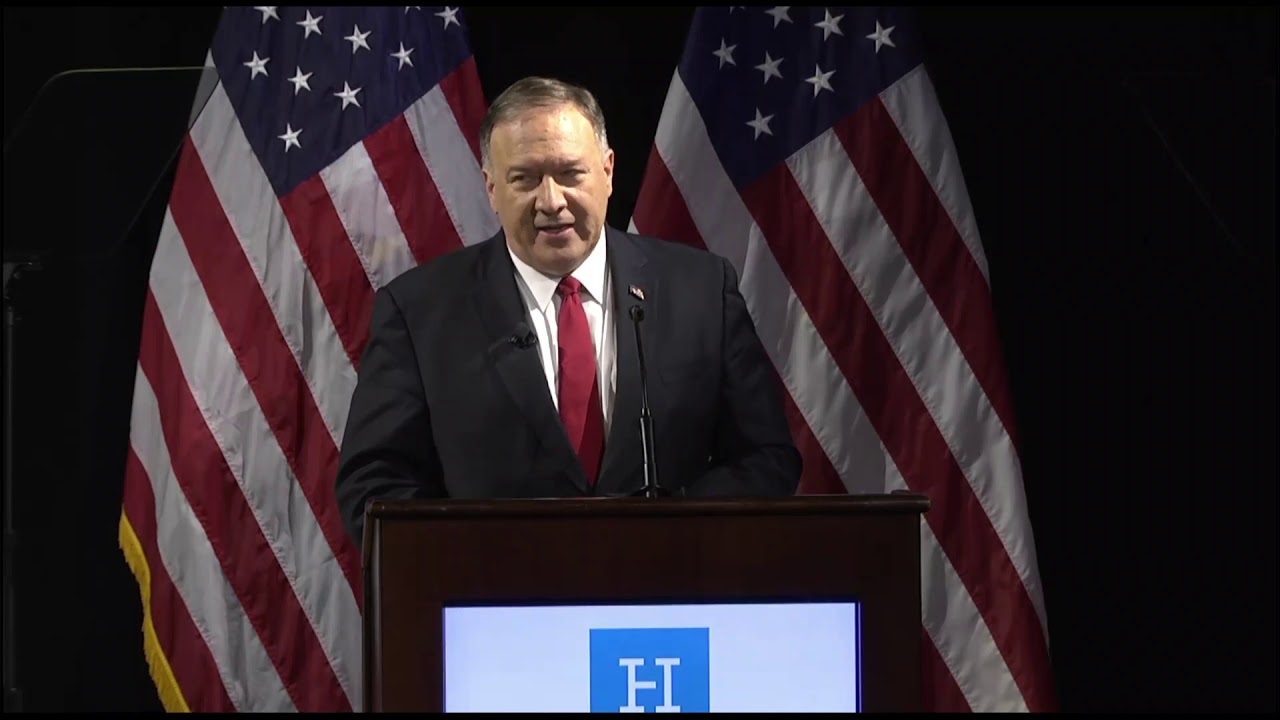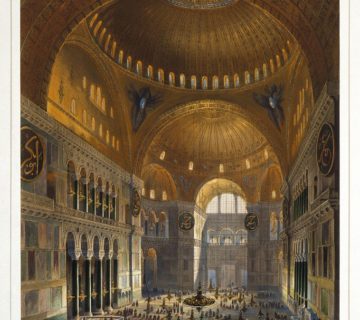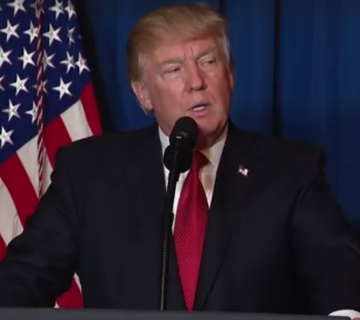AllTimeClassic
On October 31st China has been once again in the epicenter of American Public life. This time due to the interesting speech United States Secretary of State M. Pompeo delivered at the Hudson Institute’s Herman Kahn Award Gala. Founded in 1961 by strategist Herman Kahn, Hudson Institute challenges conventional thinking and helps manage strategic transitions to the future through interdisciplinary studies in defense, international relations, economics, health care, technology, culture, and law.
Rupert Murdoch, who had received the Herman Kahn Award in 2015, made the opening remarks and introduced the Secretary of State, to whom the Herman Kahn Award has been conferred this year, and Kenneth Weinstein , the Institute’s President and chief executive opened the question and answer period following Mr. Pompeo’s speech. Finally, Sarah Stern chair of the Hudson Institute’s Board presented the Secretary of State with the Herman Kahn Award.
A parte of the speech of the United States Secretary of State Mr. Pompeo follows.
“There’s still much work to do. The threat from radical Islamic extremism certainly is not gone, but the work that was done to lead that shows the excellence, the uniqueness, and to the point that was mentioned earlier, the exceptionalism that we have here in the United States of America.
I think it’s true that we can think long about history. Half a century ago your founder charged your institution to think about the future in unconventional ways. President Trump, when he selected me to be the Secretary – the director of the CIA was certainly thinking about something unconventional. Who would have predicted that this kid from Southern California would have this amazing privilege?
He also knew – Herman knew – that in the interest of furthering and protecting this great and noble experience that we call the United States of America, that there was no higher mission than to getting that right.
That’s why I thought I’d focus in the few minutes today before I take some questions, I thought I’d focus on something that is central to what the Trump administration is working on that is different from previous administrations. That’s not political, we have just – we have taken on the challenge from the People’s Republic of China in a way that the time is calling for.
Look, we have a long-cherished tradition of friendship with the Chinese people. We continue to do so today. We have a Chinese American community here in America that we love and treasure. I’ve known them through business and personal ties; I’ve known many of them.
But I must say that the communist government in China today is not the same as the people of China. They’re reaching for and using methods that have created challenges for the United States and for the world.
And we collectively, all of us, need to confront these challenges from the PRC head-on, and along each of the many facets.
There are many opportunities, to be sure, but it is no longer realistic to ignore the fundamental differences between our two systems and the impact, the impact that those two systems have, the differences in those systems have on American national security.
This is a departure, for sure. It might be viewed as unconventional. It’s not what you’ve heard from leaders for the last two decades plus. Frankly, we’ve been slow to see the risk of China – the risk that it poses to American national security, because we wanted friendship with the People’s Republic from the very start. And because we, as Americans, always continue to hope for that.
But frankly, in our efforts to achieve this goal, we accommodated and encouraged China’s rise for decades, even when – even when that rise was at the expense of American values, Western democracy, and security, and good common sense.
We downgraded our relationship with our long-time friend, Taiwan, on the condition that the “Taiwan question” would be resolved peacefully, to normalize relations with Beijing.
We all too often shied away from talking directly about the human rights issues there and American values when they came into conflict, and we downplayed ideological differences, even after the Tiananmen Square massacre and other significant human rights abuses.
We encouraged China’s membership in the World Trade Organization and other international organizations, premised on their commitment to adopt market reforms and abide by the rules of those organizations. And all too often, China never followed through.
We hesitated and did far less than we should have when China threatened its neighbors like Vietnam, and like the Philippines, and when they claimed the entire South China Sea.
Frankly, we did an awful lot that accommodated China’s rise in the hope that communist China would become more free, more market-driven, and ultimately, hopefully more democratic.
And we did this for a long time.
There’s another reason we adopted these policies: We didn’t realize how China was evolving. Frankly, the American people didn’t get the full story.
I’ve talked to so many business leaders. U.S. companies that invested heavily in China were forced to comply with China’s terms. This includes just about any topic that the Chinese Communist Party deemed controversial.
Beijing’s intransigence creates a permanent class of China lobbyists in the United States. Their primary job is to sell access to Chinese leaders and connect business partners.
And frankly, whenever there was a dispute or tension in the relationship, many of our scholars blamed the United States for misrepresenting the nature of the Chinese Communist Party.
Meanwhile, Beijing controlled and limited access to our diplomats, journalists, and academics to the main – when they were traveling to mainland China. They still do that today. If you saw the difference – if you saw the difference in how Chinese diplomats are treated and how American diplomats and the access they have, you too would find the absence of reciprocity deeply inconsistent with American values.
And China’s state-run media and government spokespeople filled the gaps, routinely maligning American intentions and policy objectives. They still do that today. They distorted how Americans view the People’s Republic and how they review General Secretary Xi.
These bad outcomes were all too predictable. They were predictable byproducts of dealing with a secretive regime that doesn’t respect fairness, the rule of law, and reciprocity.
Today, we’re finally realizing the degree to which the Chinese Communist Party is truly hostile to the United States and our values, and its worse deeds and words and how they impact us. And we’re able to do that because of the leadership of President Trump.
The President sounded this issue, this alarm, since his very first day. I remember one speech he gave back in Pennsylvania when he called China’s WTO membership “the greatest job theft in history.” A lot of people laughed. I don’t think so many of them are laughing now that they can see the reality.
It’s the case that now we know China weakens America’s manufacturing base by conducting massive intellectual property theft. I had a group of Fortune 500 CEOs in my office last week. The stories are staggering.
Now we know too that China threatens American freedoms by demanding our companies self-censor to maintain access to that Chinese market. We’ve all seen the stories recently of the NBA. The truth is Beijing ought to be free to run its own PR campaign; they’re a sovereign nation. But if we disagree, our companies ought to be permitted to have that disagreement. Silencing dissent simply is not acceptable.
And now we know – now we know that China threatens America’s national security by developing asymmetric weapons that threaten our strategic assets too”.
Source U.S. Department of State
Photo youtube.com





